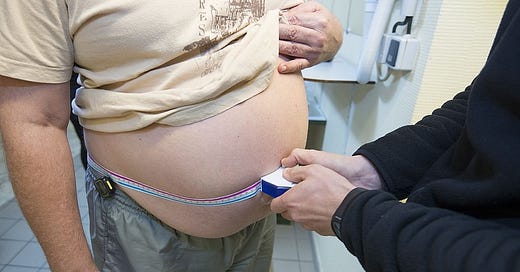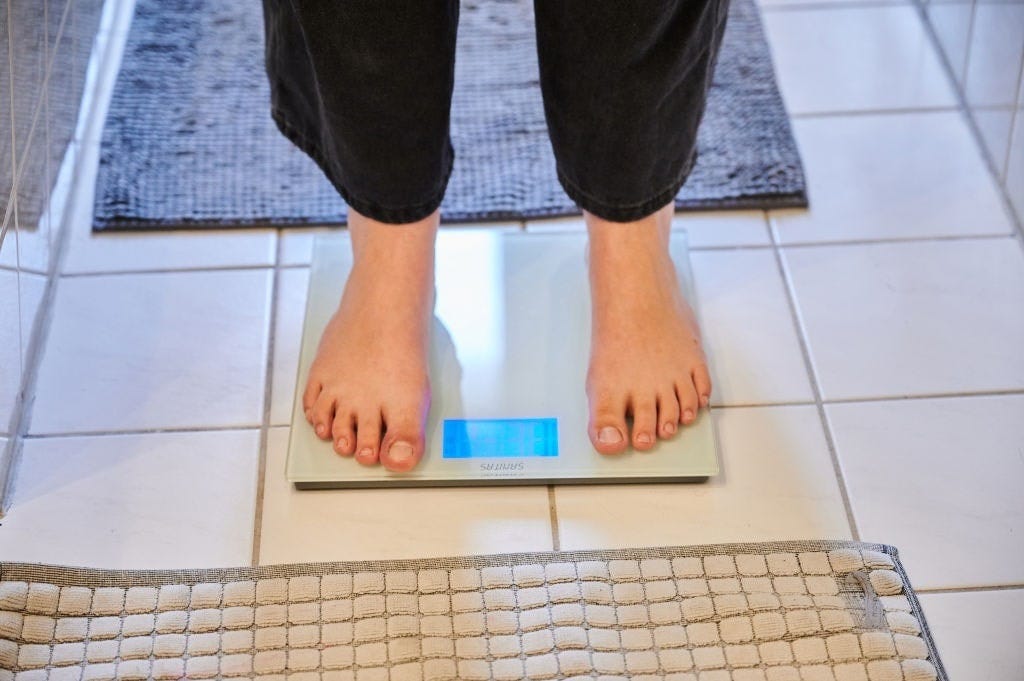UK to Measure Kids’ Bellies to Monitor Health?
Weighing obesity policy options – more George Orwell, or fewer overprocessed foods.
(Photo by: BSIP/Universal Images Group via Getty Images)
The British government proposes to measure the waistlines of children to monitor and prevent obesity. As creepy as this sounds, the idea of educating younger generations to be more informed about their health and eating decisions may be a better direction than applauding obesity as virtuous. However, some question such measures based on the UK government’s nutrition policy track record.
Measuring Waists for Health
The UK’s National Institute for Health and Care Excellence (NICE) issued the recommendations for monitoring children’s midsections beginning at age five. Advocates claim “getting a head start on measuring young children can help keep an eye on the number to help prevent a slew of diseases associated with having too much visceral (deep or internal) fat.” However well-intentioned, these proposals smack of George Orwell: Big Brother “keeping an eye” on young children under the guise of health care through a government entity named “NICE.”
There is no disputing that obesity is a growing problem (pun intended). As the world witnessed during the COVID contagion, obesity and related health issues form an ongoing underlying pandemic of their own. As a US National Institutes of Health publication remarked:
“Obesity is a complex disease which has reached pandemic dimensions. The worldwide prevalence of obesity has nearly tripled since 1975, mainly due to the adoption of a progressively more sedentary lifestyle and the consumption of less healthy diets.
“Sedentary lifestyle and the decline in overall physical activity in combination with consumption of unhealthy diets, e.g. a high sugar and refined carb diet … are currently considered the main common causes for the obesity epidemic.”
Japan’s Mid-Section Monitoring
(Photo by Annette Riedl/picture alliance via Getty Images)
Japan has long measured employees’ waists in an effort to prevent weight-related illnesses. The method reputedly originated in 1884, when Dr. Kyoshi Shiga discovered the direct connection between excess waist fat and a number of chronic diseases. As Japan responded to the increased sugar consumption and decreased exercise of modernity, it implemented the Metabo Law (named for metabolic syndrome) in 2008. Unlike UK proposals to monitor weight connected to height (BMI), the Japanese system uses simple universal waistline measurements for all employees over 40: 33.5 inches for men and 35.4 inches for women.
The idea in both the Japanese and British efforts is to direct weight-gaining people to counseling about diet and exercise as an intervention. Involving the government after age 40 seems less intrusive than targeting children, but that may be too little, too late: Teaching youngsters sensible eating habits is a better preventive than trying to enforce improved dietary habits on those proverbially “over the hill.”
Dubious UK Record
Aside from age appropriateness and effectiveness, the UK government’s response to the obesity epidemic is suspect. Japan’s obesity rate stands at 4.97% compared to Americans’ 36.47% and 27.88% for Brits. The British love their sweets, scones, and sugared tea. Yet NICE counsels eating only 70 grams of meat a day (less than three ounces). Humans have always dined on flesh: The obesity epidemic has been fueled by calorie-laden sugars and government-subsidized high fructose corn syrup, not health-promoting steak.
Meanwhile, the UK government discourages eating meat while approving food additives that enhance flavor and stimulate appetite and subsidizes sugar (beet) production. It then taxes sugared products, claiming “sugar tax revenue helps tackle childhood obesity.”
Not NICE for Health
NICE also touts Wegovy (semaglutide) for weight loss, a drug that inhibits appetite, requires weekly injections, and can cause numerous side effects. NICE does not ban addictive additives that corrupt children’s food, and yet it promotes drugs to tamp down the resulting heightened appetites. And now it proposes a government monitoring program to gauge the effects of those policies on children’s health.
UK schoolchildren are treated much like pigs in a factory. Fattened with high-calorie, immensely profitable concoctions tainted to make people overindulge, the troughs are brimming with highly processed foods. The slop is augmented with chemicals to simulate attractive tastes and stimulate more eating. The factory pigs are then weighed and injected with thinning drugs to offset the consequences of poor diet.
Skip Sugar, Skip Rope
Perhaps UK schools should skip the gut-measuring pretension and instead increase recess, offer fresh fruits and vegetables, and nourish the kids with some grass-fed burgers and kimchi once in a while. This might offset the toxic food “products” that the government has helped foist upon this unsuspecting generation, instead of peddling yet more junk drugs to follow the junk food down young gullets.
It is government food policies, not children’s waistlines, that must be more closely monitored if human health is to be prioritized over corporate profits.
(Previously published with Liberty Nation.)







In addition to teaching kids about foods that are unhealthy--sugar, corn syrup, trans fats, highly processed foods, etc.--there are some useful skills that might help. How about teaching kids how to plant a garden, how to cook well, and then how to eat slowly to encourage a more healthy diet? I am so grateful for parents who taught me all three. (Although I must admit that my waist line does not necessarily reflect what I preach.)
Great article!